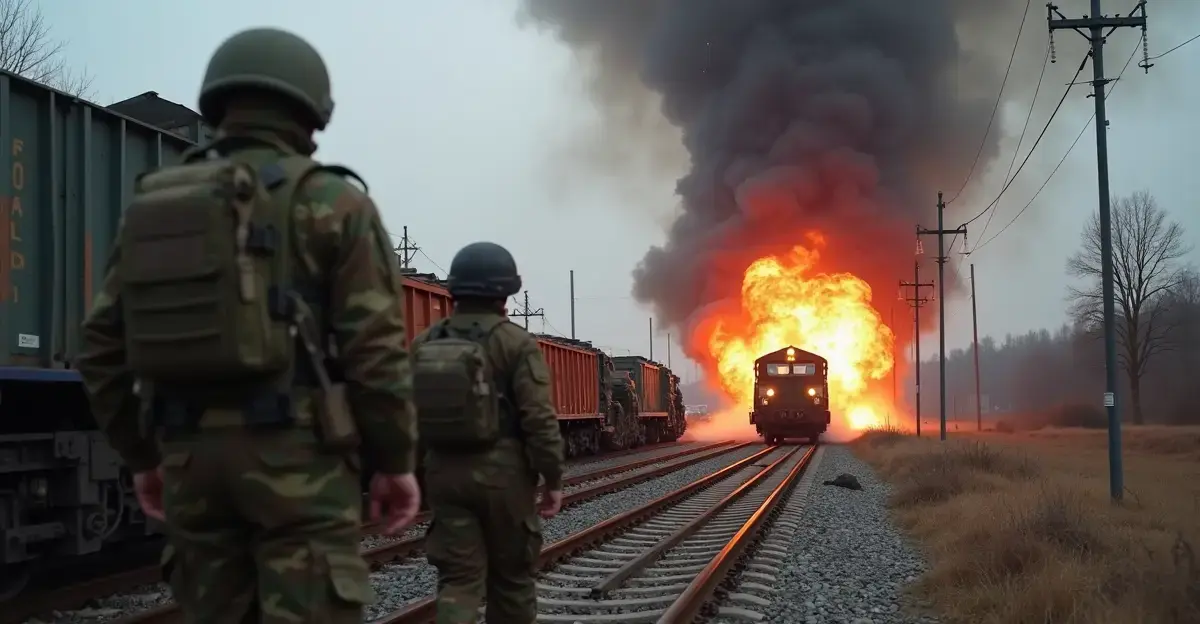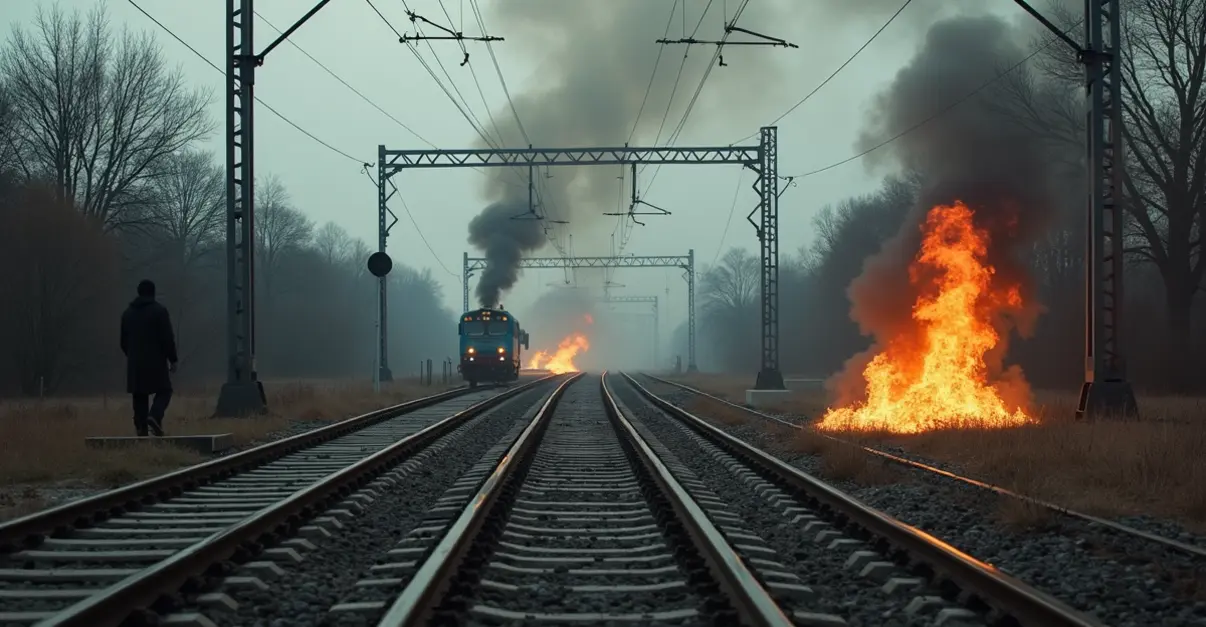NATO's Calculated Response to Polish Railway Sabotage
In a significant escalation of tensions in Eastern Europe, Poland has been targeted by what authorities describe as an unprecedented act of sabotage on a critical railway line used for transporting military aid to Ukraine. The explosion, which occurred on November 17, 2025, near the village of Mika approximately 50 miles southeast of Warsaw, has prompted a complex diplomatic and military response from both Poland and NATO allies.
Operation Horizon: Poland's Military Response
In response to what Polish Prime Minister Donald Tusk called "an unprecedented act of sabotage aimed at the security of the Polish state," Poland has launched Operation Horizon, deploying up to 10,000 troops nationwide to protect critical infrastructure. Defense Minister Władysław Kosiniak-Kamysz cited "unprecedented cases of planting explosives intended to disrupt vital infrastructure" as the reason for this intensified action.
The operation involves troops from all branches of the armed forces working alongside police, border guards, and internal security units. According to military sources, soldiers are using advanced reconnaissance drones and thermal imaging cameras to monitor key transport hubs and sensitive locations identified by security services.
NATO's Strategic Silence
Despite the severity of the incident, NATO has maintained what observers describe as a "strategic silence" regarding the sabotage. NATO Secretary General Mark Rutte stated that he was in close contact with Polish authorities but emphasized the need to await investigation results before making public statements. "We must be careful not to give Russia the attention it seeks through these provocative actions," a senior NATO diplomat told reporters on condition of anonymity.
This approach contrasts with previous incidents where Poland invoked Article 4 consultations following drone incursions into NATO airspace. "There's a deliberate effort to avoid creating panic while maintaining readiness," explained Kysia Hekster, NATO correspondent.
Russian Involvement and C4 Explosives
Polish authorities have identified two Ukrainian nationals working for Russian intelligence as the primary suspects in the sabotage. According to investigation findings, the suspects used military-grade C4 explosives to damage the railway line connecting Warsaw to Lublin, a crucial route for transporting aid to Ukraine. "This was state terrorism, pure and simple," stated a Polish security official who requested anonymity due to the sensitivity of the investigation.
The use of C4 explosives, typically reserved for military operations, represents a significant escalation in tactics. "This isn't amateur work - this is professional sabotage with clear military backing," noted Christiaan Paauwe, correspondent for Central and Eastern Europe.
Geopolitical Implications
The sabotage comes amid increasing concerns about Russia's hybrid warfare tactics targeting NATO members supporting Ukraine. "We're seeing a pattern of escalation that should concern all European nations," said Dariusz Kozerawski, former colonel and professor at Jagiellonian University in Krakau. "While Operation Horizon provides some reassurance to the public, we must question whether 10,000 troops can effectively protect thousands of kilometers of infrastructure."
Professor Kozerawski added: "This is more about psychological warfare than physical protection. The real goal is to undermine public confidence and create division within NATO."
International Response and Future Outlook
In addition to military deployment, Poland has taken diplomatic measures including the closure of Russia's consulate in Gdansk. The incident has prompted renewed discussions about NATO's eastern flank security and the alliance's response to hybrid threats.
"The strategic silence from NATO headquarters reflects a careful balancing act," explained a European security analyst. "They want to demonstrate resolve without escalating tensions unnecessarily. But make no mistake - behind the scenes, there's intense coordination happening."
As Operation Horizon continues, Polish authorities emphasize that the military presence serves both protective and deterrent purposes. "We're sending a clear message that we will defend our infrastructure and our sovereignty," stated Defense Minister Kosiniak-Kamysz during a press briefing.
The incident underscores the evolving nature of security threats in Europe and the complex challenges facing NATO in responding to hybrid warfare tactics while maintaining alliance unity and public confidence.

 Deutsch
Deutsch
 English
English
 Español
Español
 Français
Français
 Nederlands
Nederlands
 Português
Português









